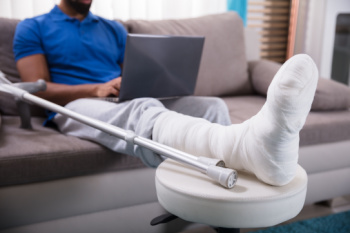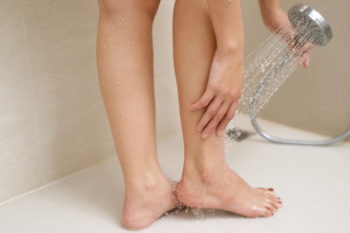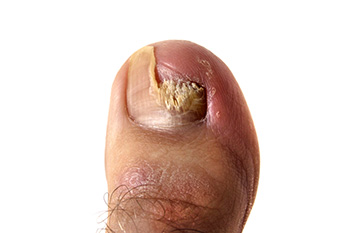
Gout is a form of inflammatory arthritis caused by the buildup of uric acid crystals in the joints, leading to sudden and severe pain, swelling, and redness, often affecting the big toe. Over time, repeated gout attacks can result in joint damage, deformity, and chronic arthritis. The accumulation of uric acid, a waste product normally excreted by the kidneys, can be attributed to various factors, including genetics and a diet that is high in purines found in red meat, seafood, and alcohol. Additionally, obesity, certain medications and underlying health conditions, such as hypertension and kidney disease, can contribute to developing gout. Lifestyle modifications consisting of maintaining a healthy weight, avoiding purine-rich foods, limiting alcohol consumption, and staying hydrated may help to reduce the risk of developing gout. Failure to manage gout effectively can lead to complications, such as tophi or lumps of uric acid crystals under the skin, kidney stones, and permanent joint damage. If you have gout, it is suggested that you seek medical attention from a podiatrist, adhere to treatments prescribed, and adopt a healthy lifestyle, which are important for preventing and managing gout effectively.
Gout is a foot condition that requires certain treatment and care. If you are seeking treatment, contact one of our podiatrists from Illinois . Our doctors will treat your foot and ankle needs.
What Is Gout?
Gout is a type of arthritis caused by a buildup of uric acid in the bloodstream. It often develops in the foot, especially the big toe area, although it can manifest in other parts of the body as well. Gout can make walking and standing very painful and is especially common in diabetics and the obese.
People typically get gout because of a poor diet. Genetic predisposition is also a factor. The children of parents who have had gout frequently have a chance of developing it themselves.
Gout can easily be identified by redness and inflammation of the big toe and the surrounding areas of the foot. Other symptoms include extreme fatigue, joint pain, and running high fevers. Sometimes corticosteroid drugs can be prescribed to treat gout, but the best way to combat this disease is to get more exercise and eat a better diet.
If you have any questions please feel free to contact our offices located in Wheeling and Berwyn, IL . We offer the newest diagnostic and treatment technologies for all your foot and ankle needs.




